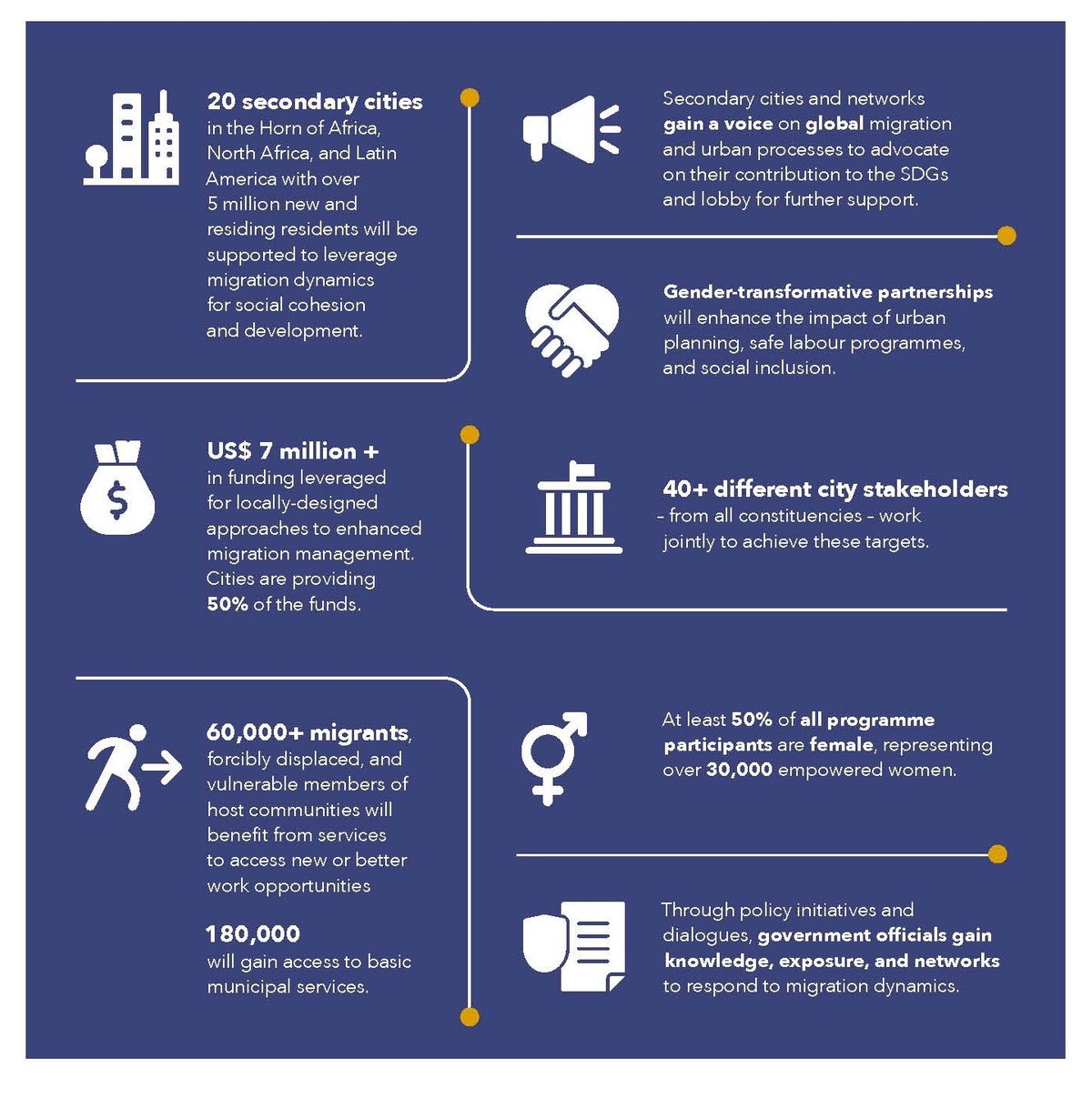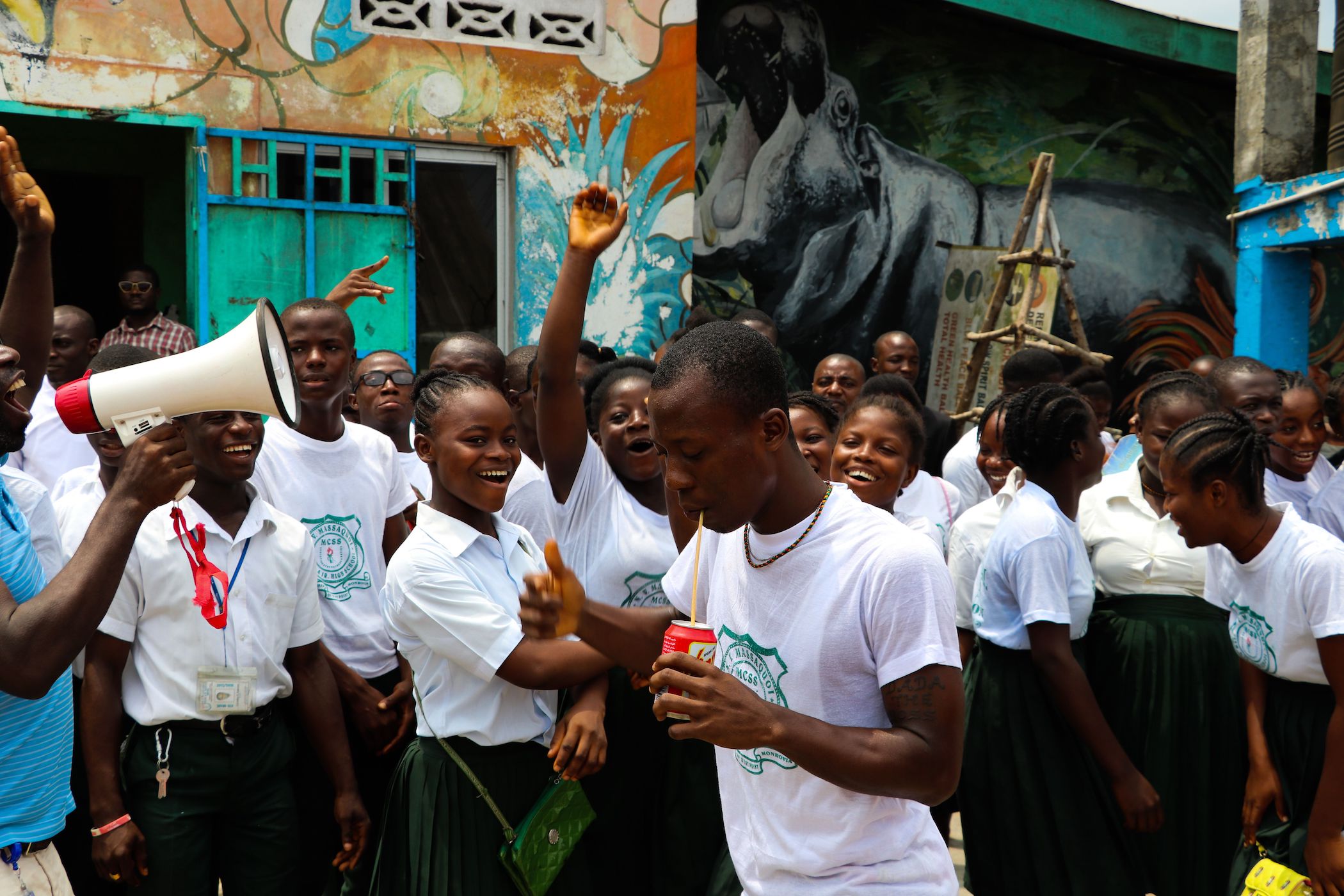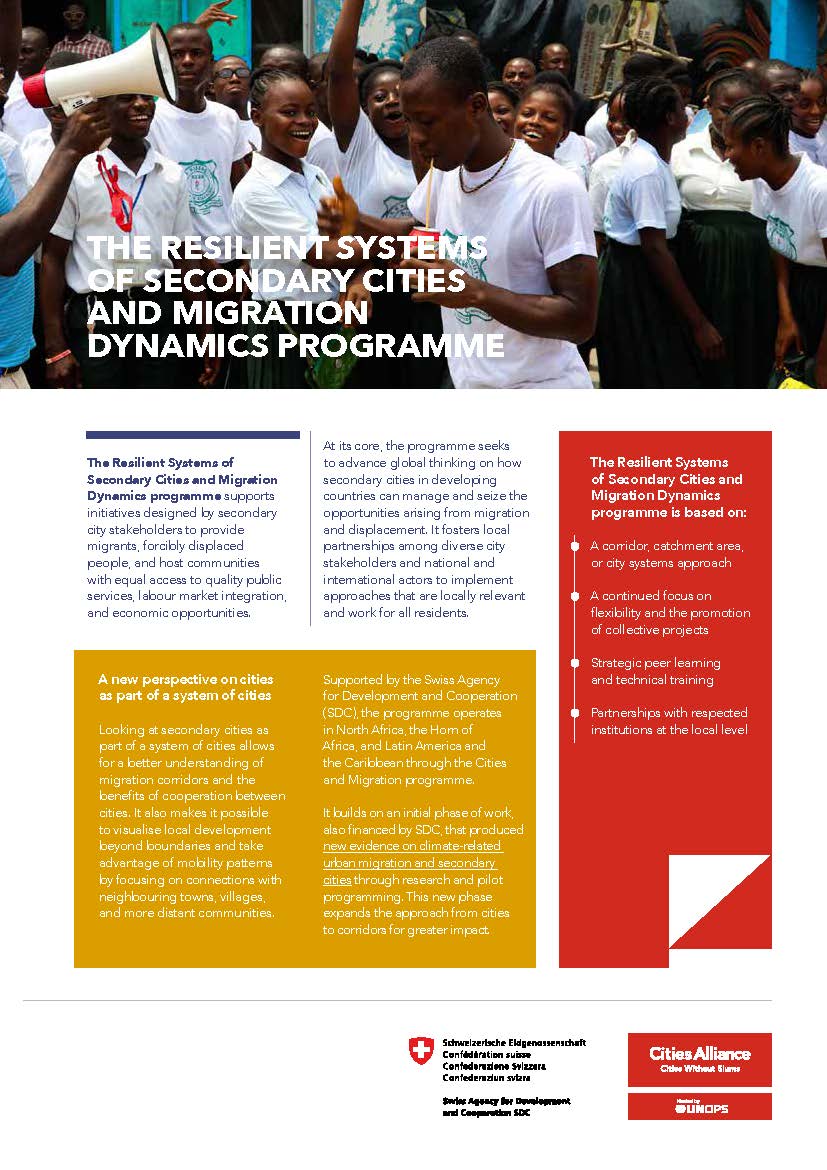This partnership initiative between Cities Alliance and the Swiss Agency for Development and Cooperation (SDC), now in its second phase, is empowering secondary cities to become central actors and leaders in unlocking the development potential of migration.
It supports initiatives designed by secondary city stakeholders in three regions – the Horn of Africa, Latin America and the Caribbean, and the Middle East and North Africa – to provide migrants, forcibly displaced people, and host communities with equal access to quality public services, labour market integration, and economic opportunities.
In 2023, the programme expanded to East Asia, where it is connecting rapidly growing towns and cities in the Lower Mekong Basin for inclusive green development.
At its core, the programme seeks to advance global thinking on how secondary cities in developing countries can manage and seize the opportunities arising from migration and displacement. It fosters local partnerships among diverse city stakeholders and national and international actors to implement approaches that are locally relevant and work for all residents.
The programme is funded by SDC, with Cities Alliance providing technical and financial assistance to local partners and governments.

A New Perspective on Cities
Looking at secondary cities as part of a system of cities enables a better understanding of migration corridors and the benefits of cooperation between cities.
It also makes it possible to visualise local development beyond boundaries and take advantage of mobility patterns by focusing on connections with neighbouring towns, villages, and more distant communities.
Projects
This project will provide access to financial services to refugees, IDPs, and vulnerable host communities residing in West Nile cities. Enumerations of urban refugees will make it easier for cities to plan and provide services, while maternal and mental health centres will provide health care for refugees and host communities. More
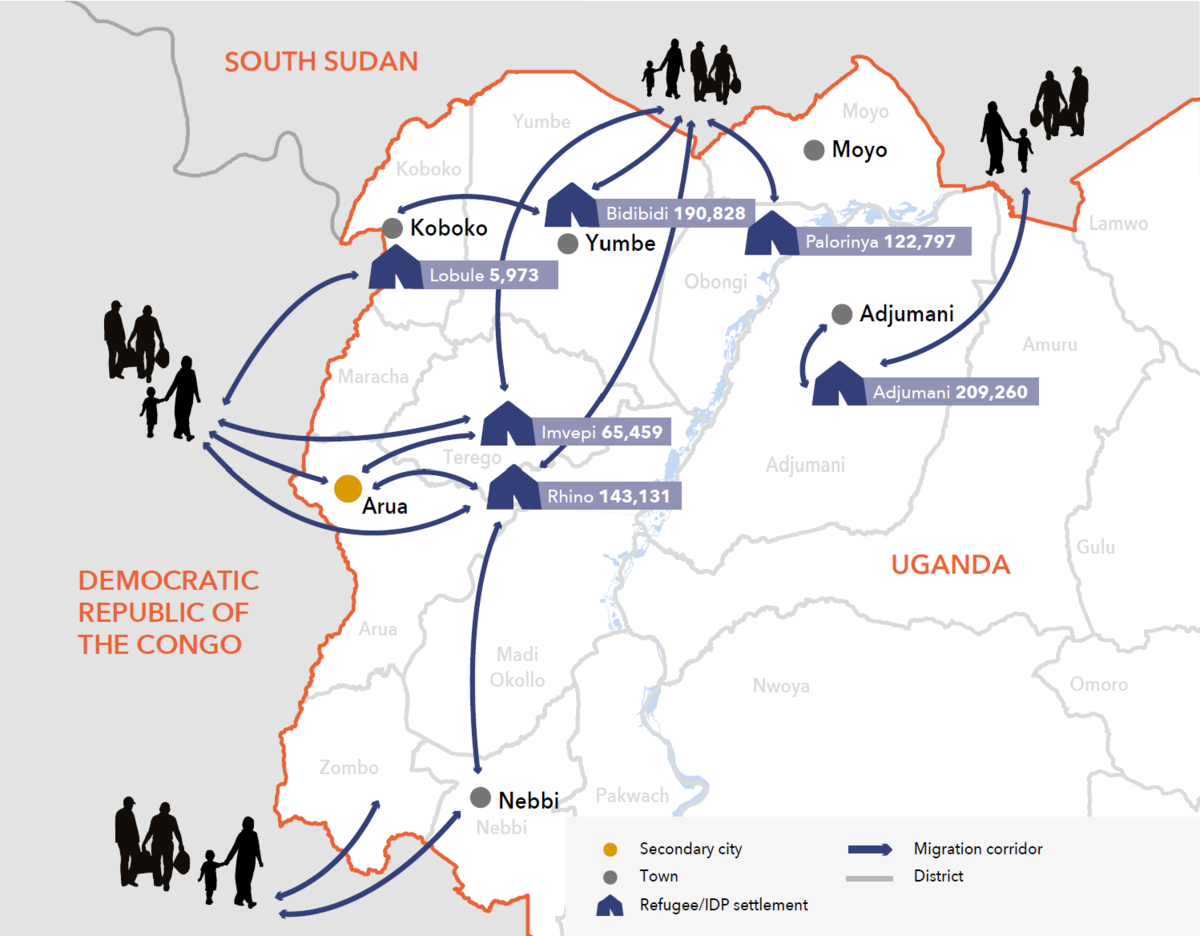
This project scales up interventions in Jinja and its surrounding areas to enable greater access to decent work opportunities and quality basic municipal services for rural-urban migrants and vulnerable host communities. More
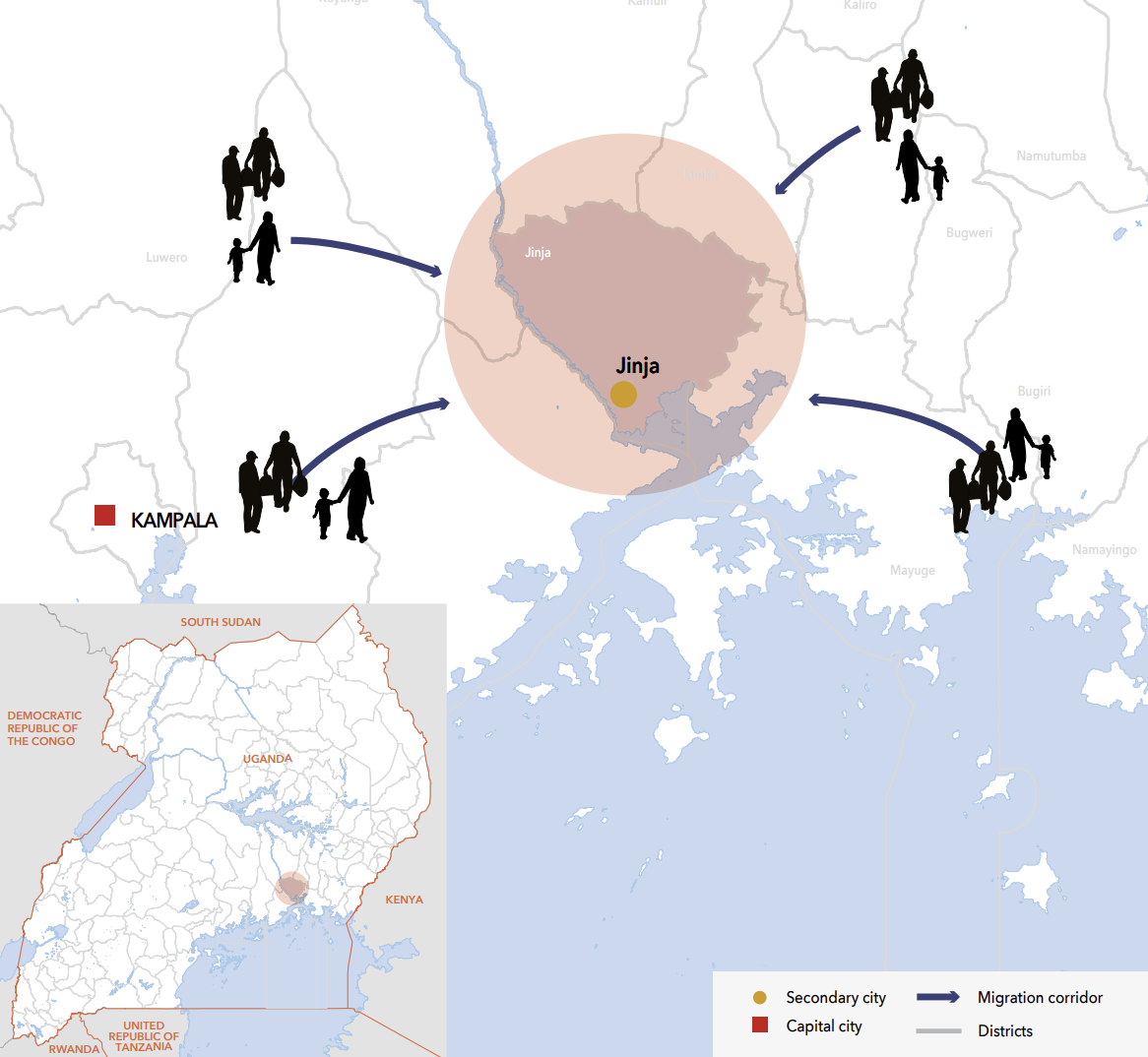
Urban Expansion Planning is a simple, cost-effective way for cities to plan the next 30 years of growth in an inclusive and environmentally sustainable manner. This project will embed the approach in national policies of Ethiopia and Uganda. A knowledge hub at leading urban planning institutions in both countries will act as national centres of excellence. More
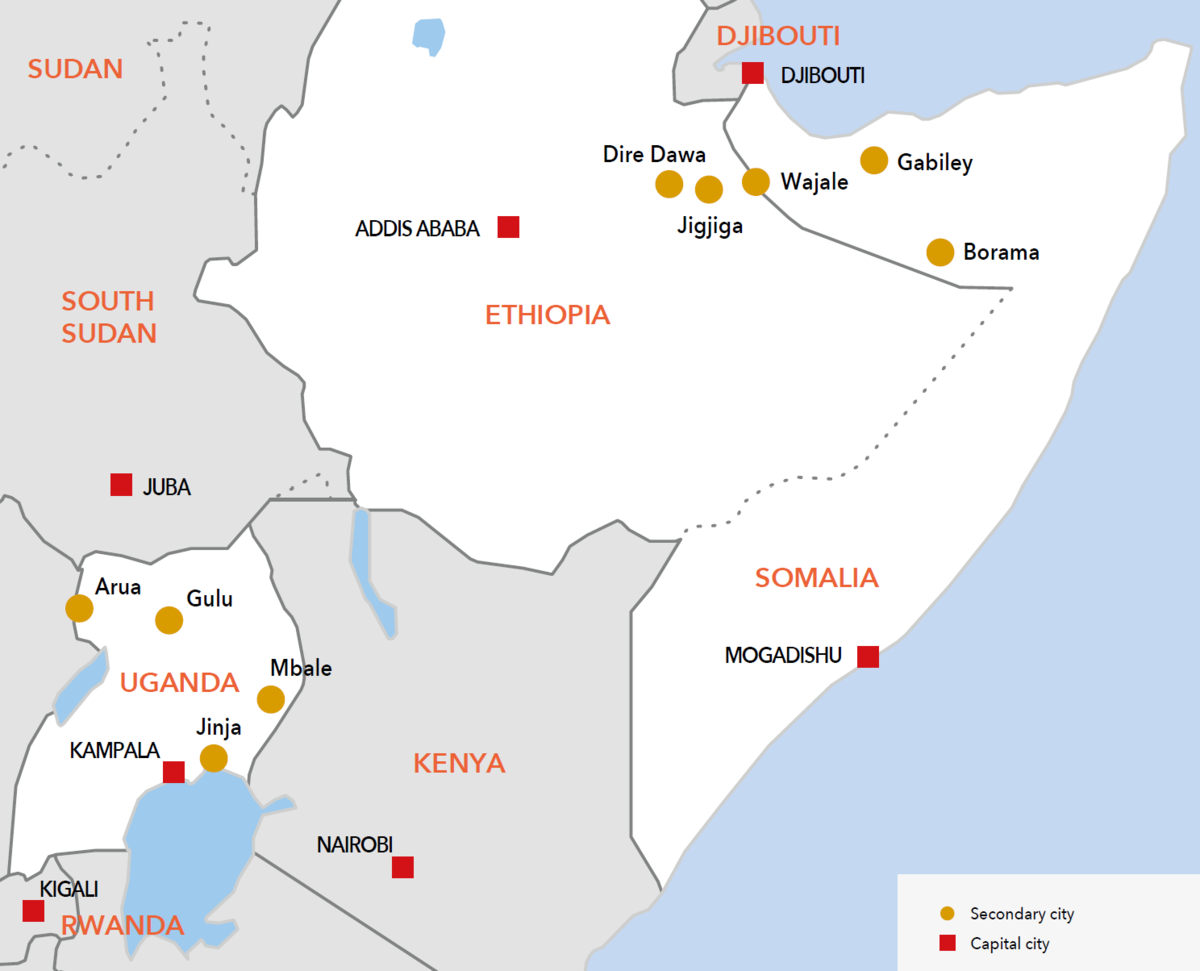
This project is an innovative cross-border partnership between academia, all levels of governance, and the private sector. Its activities cover job matching, skills development, business incubation, engagement of the diaspora for local investment, and engagement of the local government for job creation and public services such as environment and sanitation in localities along the Berbera Corridor. More
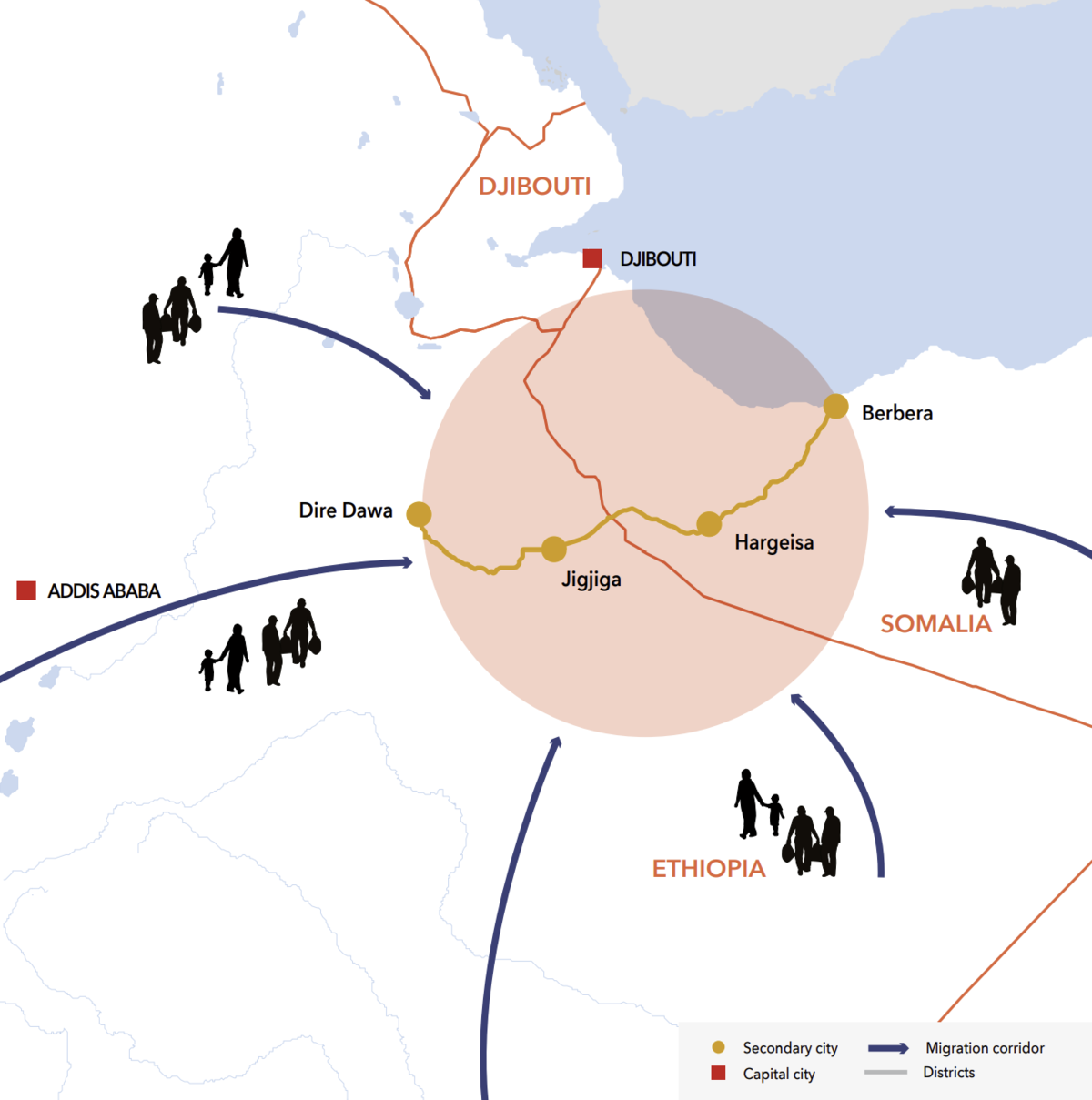
This project facilitates inclusion through training, promotion of better job opportunities, and public services for vulnerable communities, working together with the local administration and private sector in the Ethiopian Economic Corridor, which runs from Adama – capital of the Oromia Region – through the towns of Bishoftu, Dukem and Modjo. More
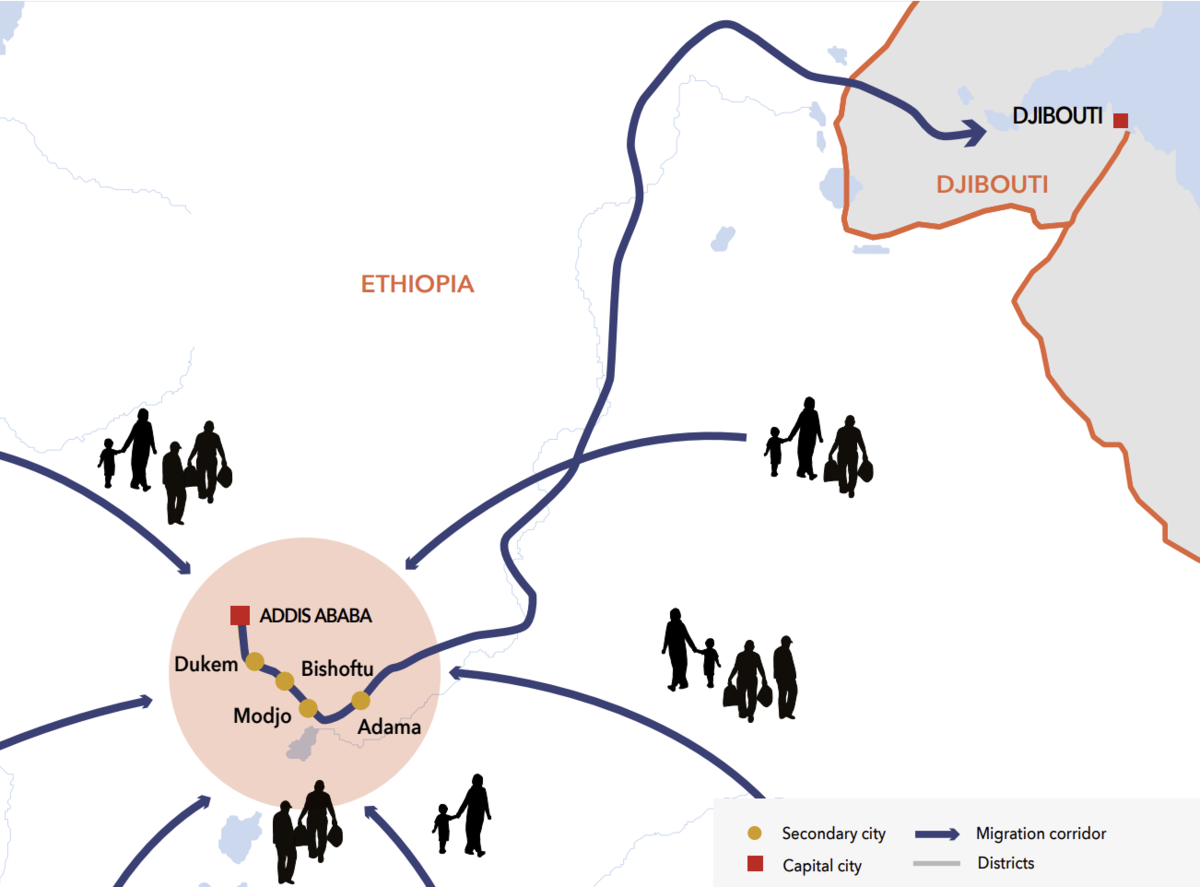
This innovative project promotes economic opportunities and financial inclusion of poor migrant and host community households in Guatemala, especially people of Mayan descent. It is a collaboration between Inter-American Dialogue (IAD), eight municipalities in Amatitlán and San Marcos Department, four financial partners, and four public schools. More
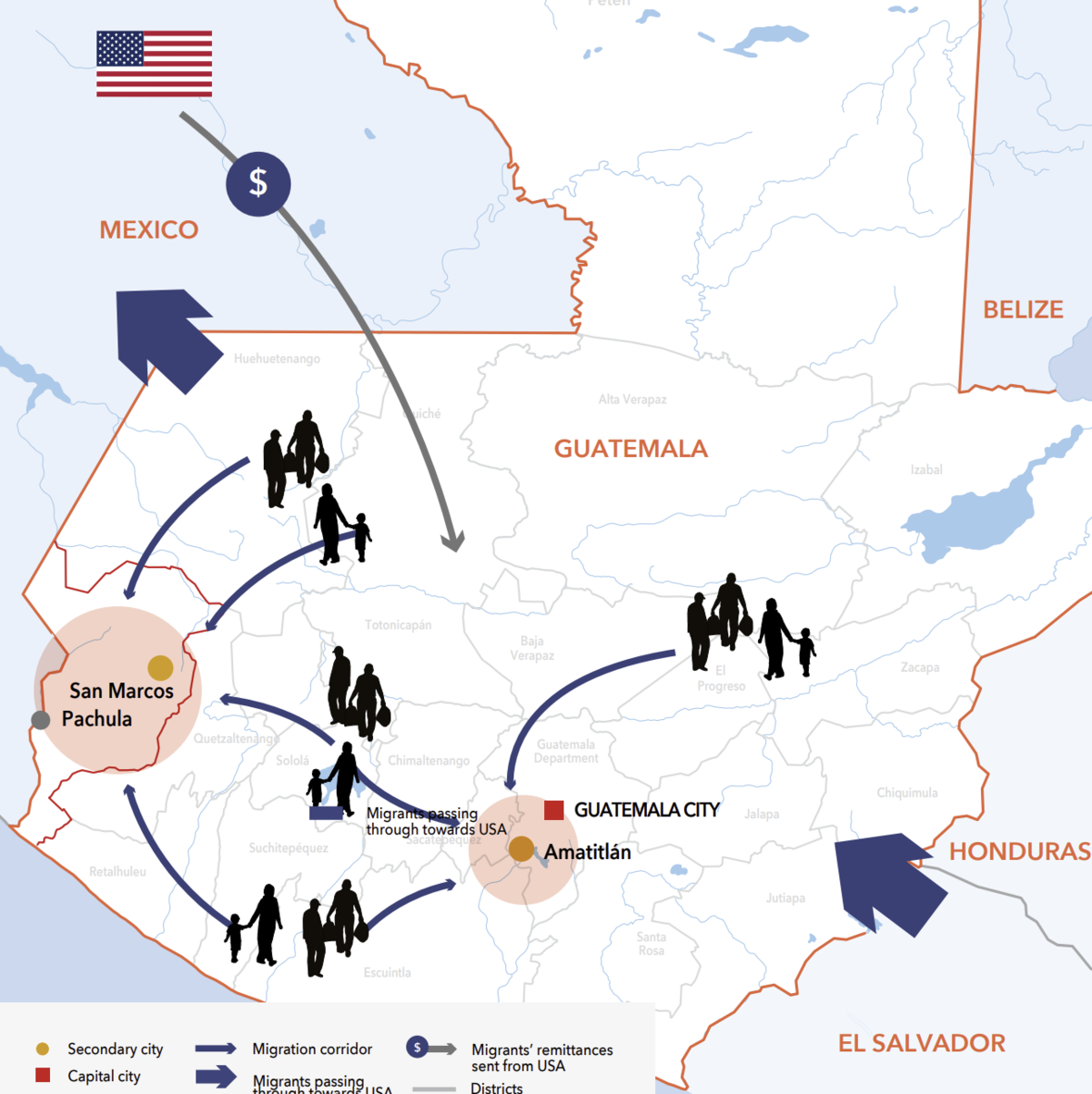
This project promotes economic inclusion of rural-urban migrants and poor host communities along the migration corridors surrounding the municipalities of Kairouan, Medenine, and Tataouine. It adopts an integrated territorial development approach that emphasises a more equitable distribution of employment opportunities and municipal services across the entire municipal territory. More
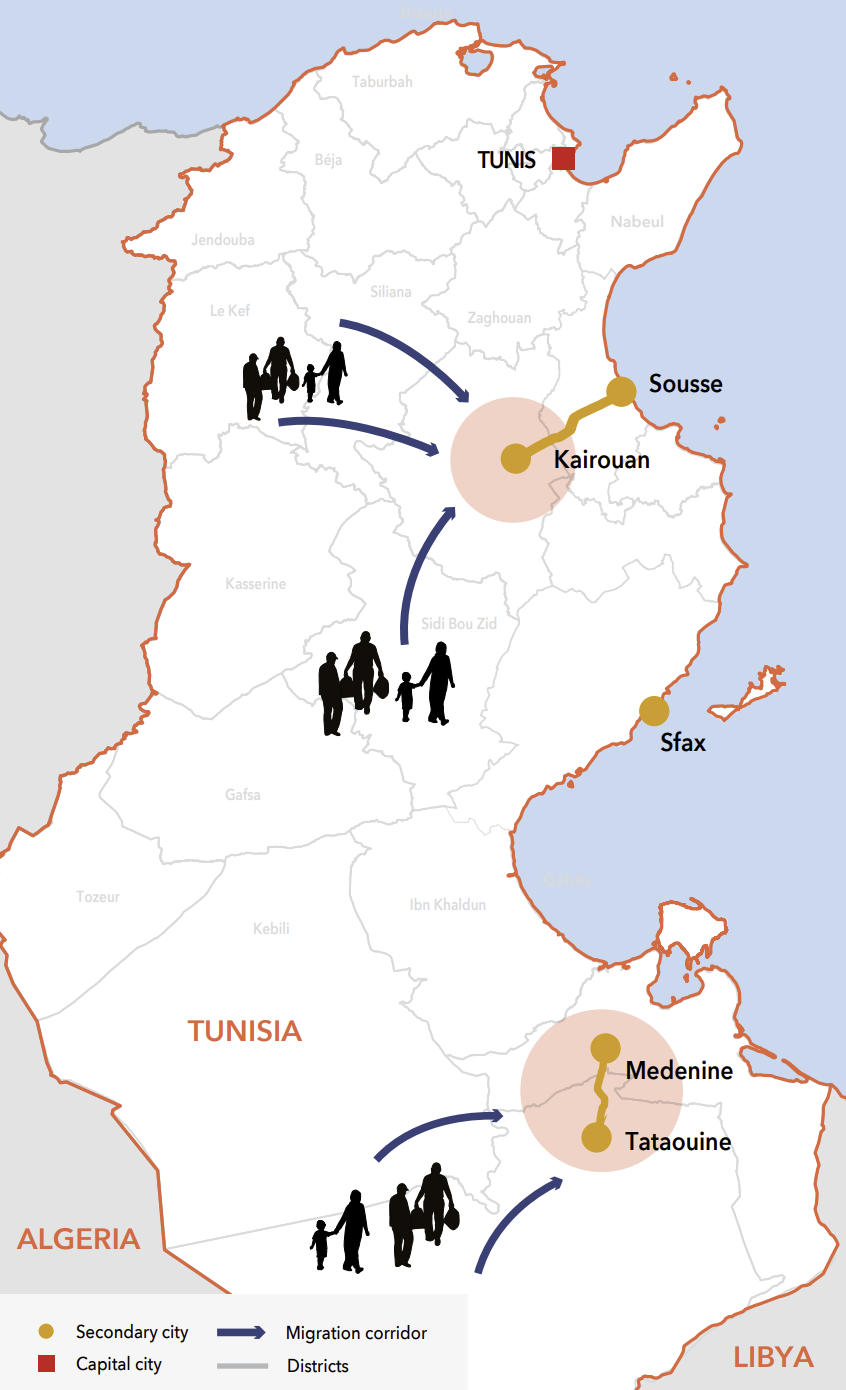
Approach
The Resilient Systems of Secondary Cities and Migration Dynamics programme focuses on a territorial approach that strengthens cities to manage and integrate mixed migration flows on their territories.
Coordination and dialogue across different levels of governance and territories – from the local, regional, national, and global levels – will strengthen locally led, multi-sectoral responses by diverse city stakeholders.
This programme builds on an initial phase of work, also financed by SDC, that produced new evidence on climate-related urban migration and secondary cities through research and pilot programming. This new phase expands the approach from cities to corridors for greater impact.
Anticipated Results
The programme pursues four interrelated outcomes, which all contribute directly to the Sustainable Development Agenda 2030. Partner cities will:
- Strengthen their capacity to address urban expansion planning for improved economic and social inclusion.
- Gain access to finance and technical assistance to improve labour market integration for migrants, displaced persons, and host communities.
- Gain access to finance and technical assistance to improve the provision of basic services for migrants, displaced persons, and host communities.
- Engage in migration and displacement diplomacy globally and regionally, thus ensuring that local migration issues are addressed internationally.
Targets
